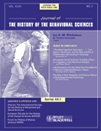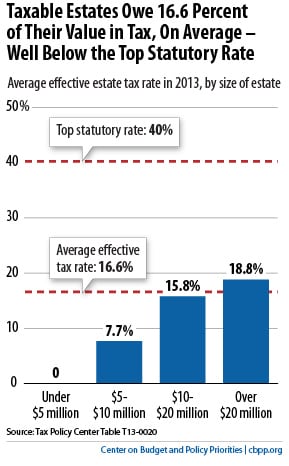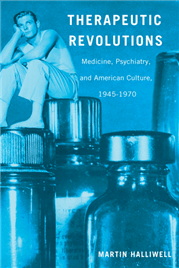Discussions regarding the use of hypnotism in dentistry featured prominently in dental journals and society proceedings during the decades around the turn of the twentieth century. Many dentists used hypnotic suggestion either as the sole anesthetic for extractions or in conjunction with local and general anesthetics for excavation and cavity filling.
Archive for July 2013
Implications of the Affordable Care Act on People Involved with the Criminal Justice System
Treatment Strategies for Online Role-Playing Gaming Problems in Couples
The Health Effects of Motorization
Mediating Effect of Adult Day Health Care (ADHC) and Family Network on Quality of Life Among Low-Income Older Korean Immigrants
Female-perpetrated sexual abuse: a review of victim and professional perspectives
Cultivating a Chairside Manner: Dental Hypnosis, Patient Management Psychology, and the Origins of Behavioral Dentistry in America, 1890–1910
From suffrage to sterilization: Eugenics and the women’s movement in 20th century Alberta.
Development and Initial Validation of the Structured Interview for Self-Destructive Behaviors
The Intersection of Welfare and Disability: Early Findings from the TANF/SSI Disability Transition Project
Only the richest 0.14 percent of estates pays any estate tax at all
Analysis of 0 to 10-point response scales using factorial methods: a new perspective
Lower urinary tract symptoms and falls risk among older women receiving home support: a prospective cohort study
Managing Homeless People Better
Therapeutic Revolutions: Medicine, Psychiatry, and American Culture, 1945-1970
Therapeutic Revolutions examines the evolving relationship between American medicine, psychiatry, and culture from World War II to the dawn of the 1970s. In this richly layered intellectual history, Martin Halliwell ranges from national politics, public reports, and healthcare debates to the ways in which film, literature, and the mass media provided cultural channels for shaping and challenging preconceptions about health and illness.


